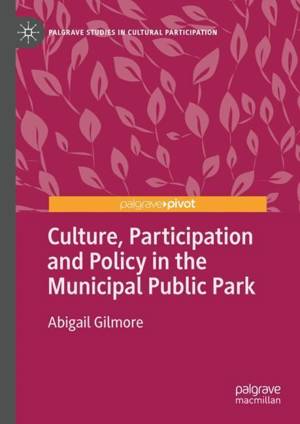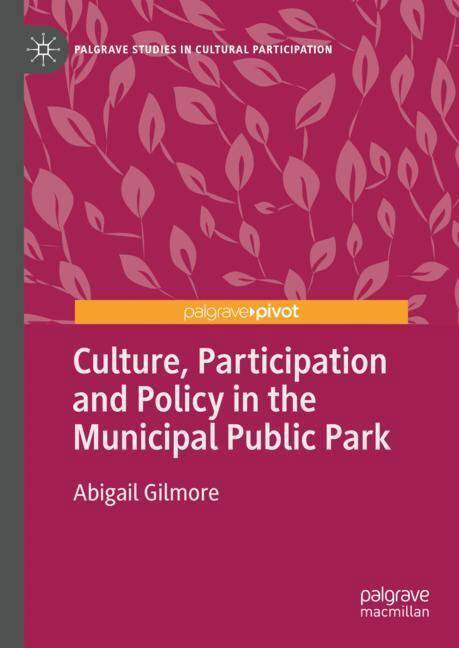
- Retrait gratuit dans votre magasin Club
- 7.000.000 titres dans notre catalogue
- Payer en toute sécurité
- Toujours un magasin près de chez vous
- Retrait gratuit dans votre magasin Club
- 7.000.0000 titres dans notre catalogue
- Payer en toute sécurité
- Toujours un magasin près de chez vous
Description
This book concerns the values and practices of participation in municipal public parks, and the connections they have with cultural policy, urbanism, and social life. Adopting a critical cultural policy lens, it identifies the park as a mundane but extraordinarily treasured place for the production and exchange of cultural values, regulation, resistance, and the practising of citizenship.
Drawing on extensive mixed-methods research on everyday participation in diverse local cultural ecosystems in England and Scotland, the book examines the social lives of parks and their users, and the important public values that are generated through their common stewardship and usership. It presents case studies of parks and co-located museums as cultural public spheres, which promote both commoning and commodification. These are contextualized by histories of municipal parkmaking from the nineteenth century to the present and related to the making of local government and toother civic and cultural institutions.The book highlights contemporary issues of austerity, marketisation and de-municipalisation within local government in the context of urban development. It positions the public park as fundamental to democratic cultural governance and makes the case for the primacy of public trust, ownership, and park equity in safeguarding the right to the city.
Spécifications
Parties prenantes
- Auteur(s) :
- Editeur:
Contenu
- Nombre de pages :
- 203
- Langue:
- Anglais
- Collection :
Caractéristiques
- EAN:
- 9783031442766
- Date de parution :
- 13-01-24
- Format:
- Livre relié
- Format numérique:
- Genaaid
- Dimensions :
- 148 mm x 210 mm
- Poids :
- 417 g

Les avis
Nous publions uniquement les avis qui respectent les conditions requises. Consultez nos conditions pour les avis.






